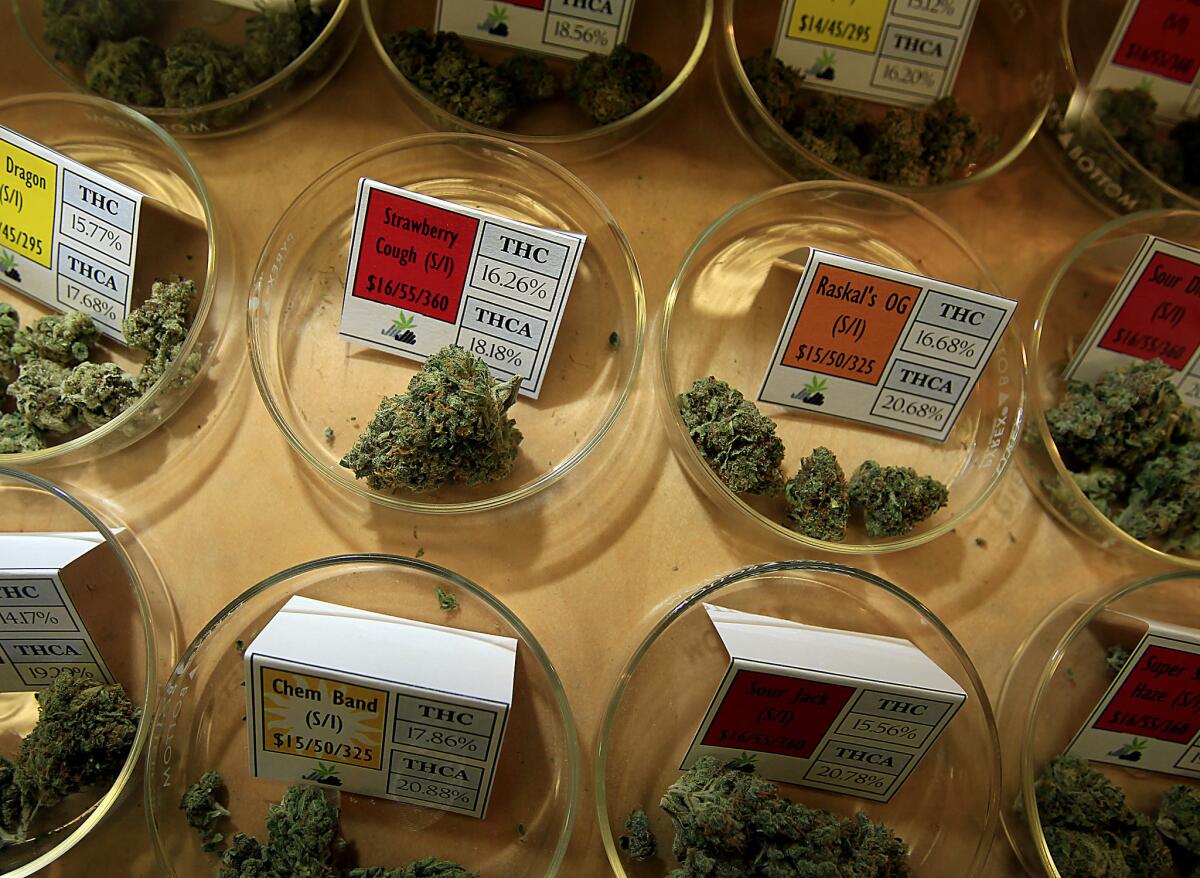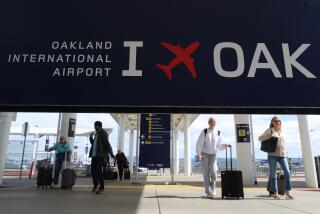Bay Area cities battle U.S. in bid to save marijuana dispensaries

OAKLAND -- Two Bay Area cities’ battle to preserve access to medical marijuana heated up Wednesday, as Berkeley filed suit to block a federal forfeiture action against its oldest and largest dispensary, and Oakland – which filed a similar suit last year – prevailed with an important court ruling.
Melinda Haag, U.S. attorney for the Northern District of California, last year moved to seize the Oakland and San Jose properties of Harborside Health Center, the country’s largest dispensary. In May, her office filed a similar action to seize the property of Berkeley Patients Group.
Both cities have stepped in to fight the federal moves, asserting that the dispensaries comply with local and state laws and offer safe access to medical cannabis for patients who might otherwise turn to the illegal market.
In Wednesday’s claim, filed on behalf of Berkeley by the Drug Policy Alliance, the city is attempting to intercede in the forfeiture action by saying it stands to lose “substantial revenue” if Berkeley Patients Group is shuttered.
The claim also asserts that the forfeiture would undermine the city’s comprehensive efforts to regulate and control medical marijuana, and that closure of the dispensary founded in 1999 would be likely to lead to more unregulated, unpermitted dispensaries and to an increase in illicit marijuana sales on city streets.
“It is time for the federal government to wake up and stop these asset forfeiture actions,” Berkeley Mayor Tom Bates said in a statement. “Berkeley Patients Group has complied with the rules and caused no problems in the city. The federal government should not use its scarce resources to harass local law-abiding businesses.”
Also Wednesday, U.S. Magistrate Judge Maria-Elena James in San Francisco agreed to place the federal forfeiture action against Harborside’s properties on hold while Oakland appeals in its effort to intercede.
James previously ruled that Oakland – which had missed a deadline to weigh in directly on the forfeiture but filed suit on separate legal grounds – did not have the right to sue. Oakland appealed that ruling to the U.S. 9th Circuit Court of Appeals, and Cedric Chao, representing Oakland pro bono, then went back to James to request that the forfeiture action be placed on hold until the appellate court rules.
In agreeing to do so Wednesday, James said Oakland had “demonstrated that it has a stake or interest in the action” and had raised “novel legal questions” that constitute “a matter of significant public interest” for the city and its residents.
“If this court’s analysis was incorrect, the court’s dismissal will have foreclosed Oakland from protecting its interests. Thus, at the heart of Oakland’s appeal is its right to access the federal court to assert its claims – a right of paramount importance,” James wrote.
Attorneys for the federal government had argued that the stay would hinder prosecutors’ ability to enforce federal drug laws, but because the U.S. attorney’s office waited six years to file the forfeiture action – knowing Harborside was operating medical cannabis dispensaries at the properties – James concluded that no harm would be caused by a further delay.
The U.S. attorney’s office could not immediately be reached Wednesday. It has consistently declined to comment on the forfeiture cases in the past.
ALSO:
Newport Beach extinguishes plan to ban fire rings
Hippo love: Otis and Funani reunited at San Diego Zoo
Fourth of July weather: Some clouds, slightly below-normal temps
More to Read
Sign up for Essential California
The most important California stories and recommendations in your inbox every morning.
You may occasionally receive promotional content from the Los Angeles Times.











